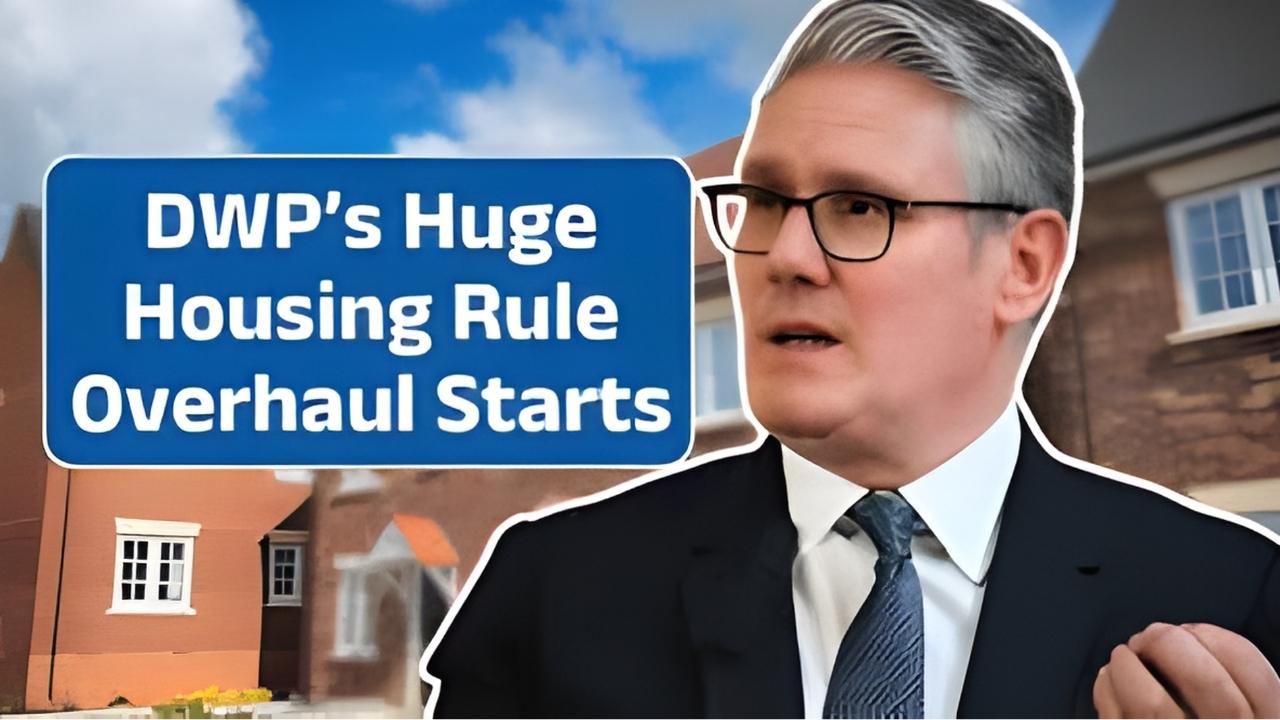The Department for Work and Pensions (DWP) has officially announced a set of new home ownership rule changes for pensioners across the United Kingdom. These new regulations, which will begin rolling out over the coming months, are designed to modernise how housing support and benefits apply to retired citizens. The changes aim to make property ownership fairer, reduce benefit misuse, and ensure that those most in need receive proper financial support. However, the update has also sparked widespread discussion about its potential impact on retirees who rely on both private and state pensions.
Why the DWP Has Updated the Home Ownership Rules
In recent years, the UK government has been reviewing its welfare and housing benefit systems to reflect the country’s changing demographics. A growing number of retirees now own homes, either outright or through mortgages, while others continue to rent due to rising property prices. According to the latest figures from the Office for National Statistics, more than 70% of pensioners in the UK own their homes. Despite this, many still claim housing-related benefits such as the Pension Credit or Support for Mortgage Interest (SMI).
The DWP has argued that the current system does not fully reflect modern property values or living arrangements. Some homeowners are living in high-value properties while still qualifying for benefits designed for low-income individuals. To address this imbalance, the government has introduced updated assessment criteria that consider the overall value of assets, including owned property, when determining benefit eligibility.
What the New Rules Mean for Pensioners
Under the new DWP guidelines, the way pensioners’ property ownership affects their benefit entitlements will change. For homeowners, the updated policy introduces new limits on how property equity is assessed. This means that if a pensioner owns a home above a certain value threshold, it could influence their eligibility for means-tested benefits like Pension Credit and Housing Benefit.
The Department has made it clear that these rules are not designed to penalise homeowners but to ensure fairness across all applicants. Pensioners who have modest homes or live on limited income will continue to receive support. However, those with significant property assets may see their benefits reduced or require reassessment under the new system.
In addition, the DWP is introducing a new provision to help pensioners who are “asset-rich but cash-poor.” These are individuals who own valuable homes but have limited disposable income. The department plans to create flexible options such as deferred payment schemes or partial benefit adjustments, ensuring they are not forced to sell their homes to access support.
Impact on Renters and Non-Homeowners
The updated home ownership rules will also affect pensioners who rent. Under the new structure, renters may receive more targeted assistance through enhanced housing support. The DWP aims to adjust benefit amounts to better reflect regional rent differences, especially in high-cost areas such as London and the South East.
This means pensioners who rent privately or through housing associations may see an increase in support, as long as their total assets fall within the approved threshold. The DWP has also confirmed that pensioners living in social housing will continue to receive the same level of protection as before.
Reactions from Pensioner Groups and Economists
The announcement has drawn mixed reactions from both pensioner advocacy groups and financial experts. Supporters of the policy argue that it is a step toward greater fairness, ensuring that public funds are directed to those who truly need them. They point out that some wealthier pensioners have been able to claim benefits despite having substantial assets tied up in property.
However, critics warn that the changes could place financial pressure on middle-income retirees who rely on small pensions and modest savings. Organisations such as Age UK have urged the government to ensure the new rules do not unfairly disadvantage homeowners who are not wealthy but may live in areas where property values have increased significantly over the years.
The DWP has responded by stating that the policy will be introduced gradually, giving affected pensioners time to adjust and seek financial advice. Guidance and support lines will also be made available to help individuals understand how the new criteria apply to their specific situations.
Support Options for Pensioners
To ease the transition, the DWP has announced several measures to help pensioners adapt to the changes. These include:
- Free financial advice through local councils and community support programs.
- Access to updated online tools to check benefit eligibility based on new property value assessments.
- A grace period allowing pensioners to appeal or request reassessment if their circumstances change.
- Guidance for those considering equity release or other financial arrangements to manage their assets responsibly.
The department also reassured pensioners that the changes will not affect their basic State Pension entitlement, which remains separate from housing-related benefits.
What Pensioners Should Do Now
If you are a pensioner in the UK, it is important to stay informed about the upcoming DWP rule changes. Begin by reviewing your current property valuation and checking how it may influence your benefits. You can contact the DWP directly or use their online calculator to estimate your new entitlement once the rules take effect.
It is also advisable to keep all property and financial records updated, including mortgage statements, pension details, and investment summaries. Seeking professional financial advice early can help you make the best decisions before the new regulations are fully implemented.
Looking Ahead
The DWP’s decision to revise home ownership rules for pensioners represents a broader effort to modernise the UK’s social welfare system. With rising property prices, longer life expectancy, and an aging population, the government aims to create a sustainable model that balances fairness with fiscal responsibility.
While the changes will require adjustment for many pensioners, they also present an opportunity to create a more transparent and equitable benefits framework. Over time, this could help ensure that financial assistance reaches those who truly need it most, while maintaining the dignity and independence of older citizens across the country.
Conclusion
The DWP’s announcement of new home ownership rules marks a significant shift in how pensioners’ property assets are considered when assessing benefits. Starting soon, eligibility for housing-related support will be more closely linked to total property value and overall financial circumstances. For many, the impact will be minimal, but for others, it could mean re-evaluating how they manage their assets in retirement. The government insists the changes are about fairness and long-term sustainability, not punishment. By staying informed and seeking guidance, pensioners can navigate these updates confidently and protect their financial security in the years ahead.
Disclaimer
This article is intended for informational purposes only and does not constitute official financial or legal advice. Rules and eligibility criteria may vary depending on individual circumstances. Readers should consult the DWP or a qualified financial advisor before making any decisions related to benefits or property ownership.



